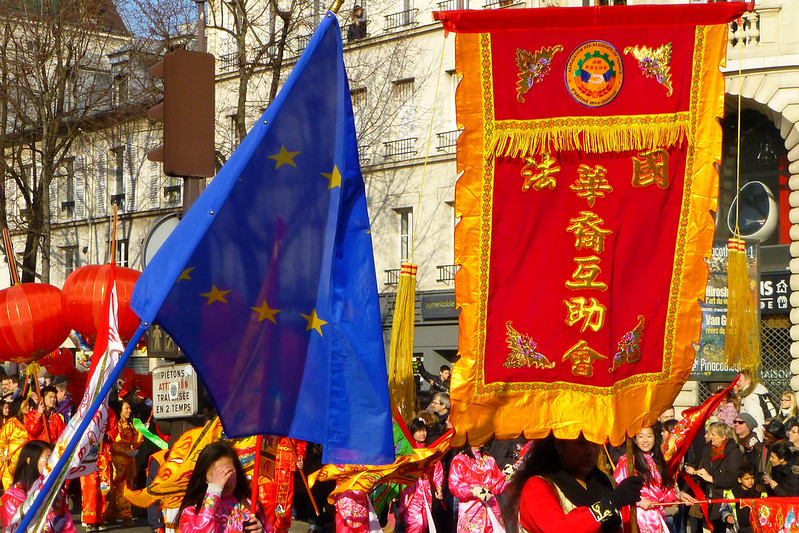European companies: unpredictable and harder to do business in China
The latest report by the EU Chamber of Commerce in China laments the difficulties created by the increasing presence of politics in the economy. National security seems more important than China's growth. Xi Jinping is planning a visit to France in May to mend fences.
Beijing (AsiaNews/Agencies) - According to a report published by the European Union (EU) Chamber of Commerce in China, politics has crept into the business environment and companies are facing increasing risks due to political infiltration. For this reason, foreign companies must allocate more resources for risk control and compliance in a market that has become unpredictable.
The report - based on a survey and interviews with members of the EU Chamber of Commerce in China - highlighted that 55% of members agreed that the business environment has become more political compared to the previous year.
The survey also found that 76% of members have reviewed their operations in China and sought to diversify their supply chains. In the context of the de-risking strategy adopted by the EU, more foreign investors in China are considering adjusting their business strategies.
The report, Riskful Thinking: Navigating the Politics of Economic Security, outlined approaches to managing perceived threats and measures taken by companies.
Trade relations between the EU and China have taken a nosedive after the European Union launched an investigation into subsidized Chinese electric vehicles. Furthermore, the de-risking strategy aims to reduce excessive economic dependence on China, especially in the sectors of raw materials and key industries related to the green transition, such as electric batteries and solar panels.
These actions have aroused discontent in Beijing. Amid the tensions of geopolitical conflicts, the Chinese market appears to be less attractive to foreign investors and companies are facing more pressure.
Last year, a survey conducted by the EU Chamber of Commerce in China showed that business confidence has significantly deteriorated, with as many as 64% of companies surveyed responding that business operations have become more difficult.
The policies of the Chinese authorities are the main cause that has pushed European companies in China to rethink their orientations. The nationwide lockdown during the Covid pandemic, China's position in the ongoing war in Ukraine, and the confrontation between China and the United States have forced many to consider an alternative supply chain outside the People's Republic.
Some companies have already moved operations to Southeast Asia. Additionally, companies operating in sensitive technology areas, such as semiconductor design and manufacturing, are taking a more careful approach to operations in China to avoid violating an export ban that could trigger sanctions.
For their part, Chinese authorities have begun cracking down on consultancy firms for national security reasons. China's latest anti-espionage law and national security law have greatly expanded the scope. Last year, some well-known audit and consultancy firms in China were raided by police. Some employees were arrested for espionage.
While strongly criticizing the de-risking strategy adopted by the European Union and the United States, China adopts similar measures. Beijing has implemented export controls on certain skills and raw materials, such as rare earths, to secure its leading position in key technology sectors.
Promoting self-reliance is part of the national strategy under Xi Jinping's government. The authorities attach greater importance to ideology: safeguarding economic security has also become one of the main tasks of China's intelligence and counter-espionage agency.
Meanwhile, there is talk of a possible visit by Xi Jinping to France in May to celebrate the 60th anniversary of the establishment of diplomatic relations. It would be Xi's first visit to Europe after the Covid 19 pandemic.
According to reports, the theme of Xi's visit will be trade and China is keen to mend relations with the EU after China's invasion of Ukraine of Russia. Currently, China's stagnant economy is experiencing several pressures and crises in the real estate sector, and Beijing expects foreign investment to remain in China.
To reinvigorate tourism, China extended visa-free travel to six more European countries in March: visitors can stay in China without a visa for up to 15 days.
Photo: Flickr /Evan Bench







.png)










